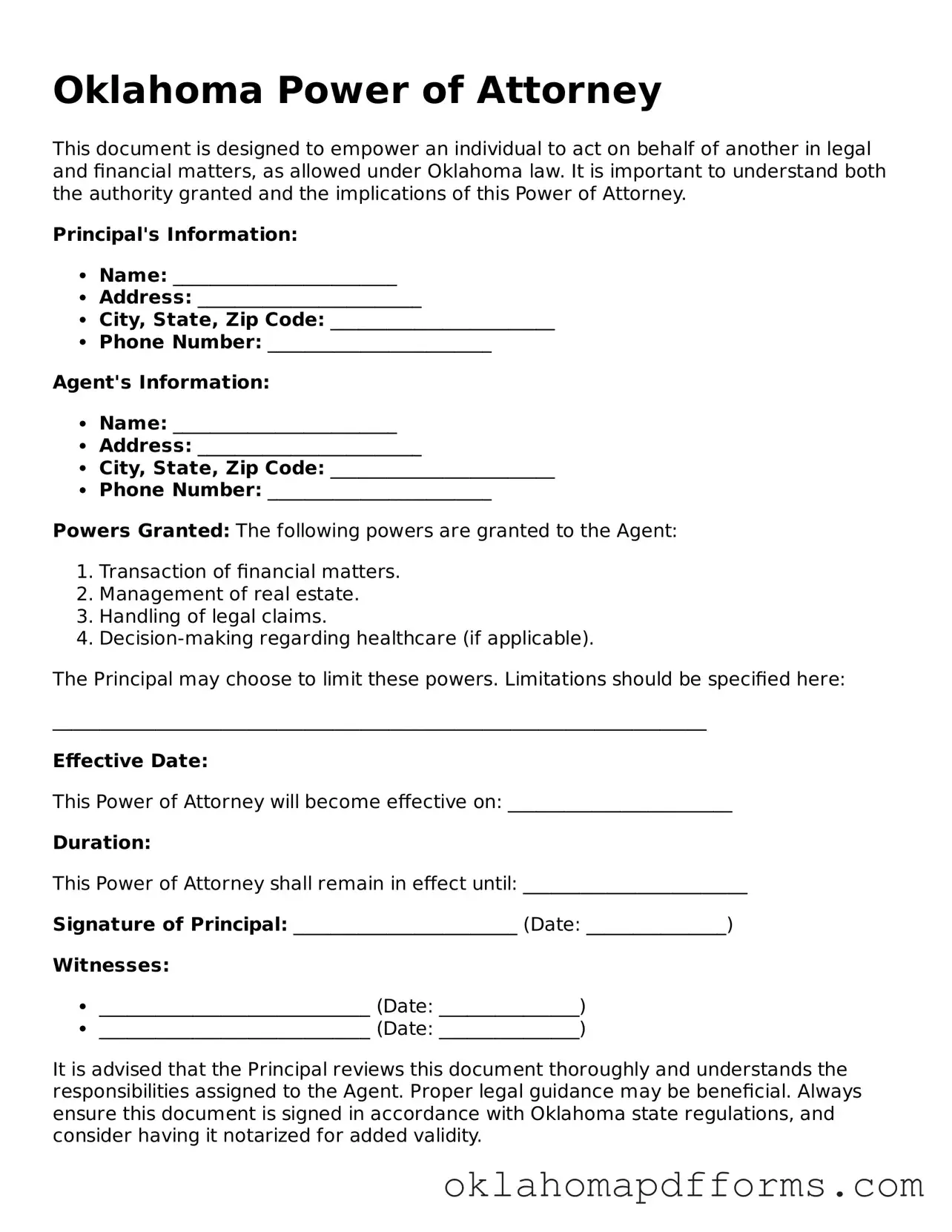Free Power of Attorney Document for the State of Oklahoma
The Oklahoma Power of Attorney form is a legal document that allows an individual, known as the principal, to designate another person, called the agent, to make decisions on their behalf. This form is essential for ensuring that one's financial, medical, or legal affairs can be managed effectively when the principal is unable to do so. Understanding the nuances of this document is vital for anyone considering granting such authority.
Open Document Now

Free Power of Attorney Document for the State of Oklahoma
Open Document Now

Open Document Now
or
▼ Power of Attorney
Your form isn’t ready yet
Fill out Power of Attorney digitally in just minutes.